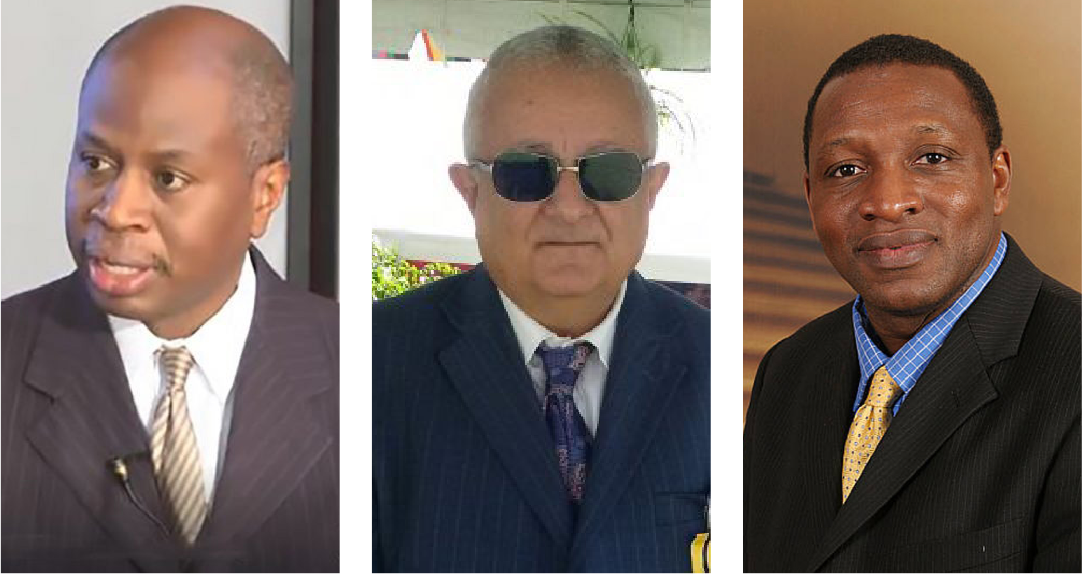
By Kadeem Joseph
As the debate continues whether to retain the death penalty as a suitable punishment for murder, a constitutional lawyer is questioning the efficacy of the sentence, which posits is not a deterrent for criminals.
To support his argument, Dr David Dorsett noted that in Montserrat, which remains a British Overseas Territory where the death penalty is not law, there has been no indication that the absence of the punishment has led to an upsurge in murders or violent crimes, nor has there been an outcry for the reintroduction of the sentence.
“The law should be there to fix or solve a problem and the fact that the death penalty has not been used might be an indication, mostly judicial, that it is not appropriate to use to solve problems,” Dr Dorsett said.
He believes the main reason people still support the application of the death penalty as a punishment for certain criminal acts is because the punishment remains enshrined in law.
In Antigua and Barbuda, where the death penalty is still lawful, the gallows at Her Majesty’s Prison have not been used since February 21, 1991 when Tyrone Nicholas was hanged for murder.
Dr Dorsett also stated that the Privy Council, Antigua and Barbuda’s final appellate court, has indicated that if the death penalty is to be used it should be applied “in the worst of the worst circumstances”, an act the likes of which he believes may not happen in this lifetime.
“And so I think very serious consideration has to be given to if a law has not been used for donkey, donkey years, what is the utility?” he queried.
He also referenced the 1993 Pratt and Morgan ruling by the Privy Council which stated that the death penalty cannot be carried out if the prisoner in question has been under sentence of death for more than five years.
The constitutional lawyer reiterated that purpose of sentencing should ultimately serve as a deterrent, a punishment or for rehabilitation.
“If the death penalty were to work, it would have worked by now,” Dr Dorsett concluded.
Meanwhile, noted Senior Counsel Anthony Astaphan, who said that he has “mixed feelings” on the utility of the death penalty, addressed the widespread belief that in matters of murder, the convict should be put to death, by arguing “justice was not meant for revenge … but punishment”.
Astaphan also said that consideration of other jurisdictions like the United States where death row inmates have been released after years of incarceration following their exoneration due to DNA technology, or there has been racial prejudice or evidence tampering, is “concerning to him” and raises a “red flag” on the issue of the death penalty.
Astaphan also referenced section 4, subsection 1 of the Constitution of Antigua and Barbuda, which states, “No person shall be deprived of his life intentionally save in execution of the sentence of a court in respect of a crime of treason or murder of which he has been convicted.”
Adding, in subsection 2, “A person shall not be regarded as having been deprived of his life in contravention of this section if he dies as the result of the use, to such extent and such circumstances as are permitted by law, of such force as is reasonably justifiable-
- for the defence of any person from violence or for the defence of property;
- in order to effect a lawful arrest or to prevent the escape of a person lawfully detained;
- for the purpose of suppressing a riot, insurrection or mutiny; or
- in order lawfully to prevent the commission by that person of a criminal offence,
- or if he dies as the result of a lawful act of war.”
Astaphan said the question of the abolition of the death penalty is a “complexed” one and considering the constitution’s stance on the matter, “It is not all circumstances where the infliction of the penalty or the result of death through the execution of surprising riots, et cetera, would constitute a deprivation of ones human right to life.”
He added that while he shares Dr Dorsett’s view on the practicality of the death penalty, he is “reluctant to come to a view that simply because it has not been used it should be removed, but at the same time, if it is not being used, as Dr Dorsett quite rightly put it, why do we have it?”
Astaphan said that it seems the judicial discretion to impose a sentence of death may be constitutional, noting that he would look forward to an argument at the Privy Council or the Caribbean Court of Justice on the matter.
But political advisor and social affairs commentator Dr Isaac Newton, who said he is personally opposed to the death penalty is challenging whether the constitution is “fundamentally ethical” in some of its tenets.
“My position is it [the death penalty] is fundamentally evil and reprehensible and there is no way anyone could convince me that killing another person because the person has killed someone justifies killing,” he added. “I mean it is a twisted logic.”
The discussion, on Sunday’s Big Issues, was triggered after Scotland Yard sought assurance that the death penalty would not be applied if a conviction occurred in a murder it had been asked to assist local police investigate.
That matter involves the kidnapping and shooting death of Customs Inspector Nigel Christian which occurred on July 10.
